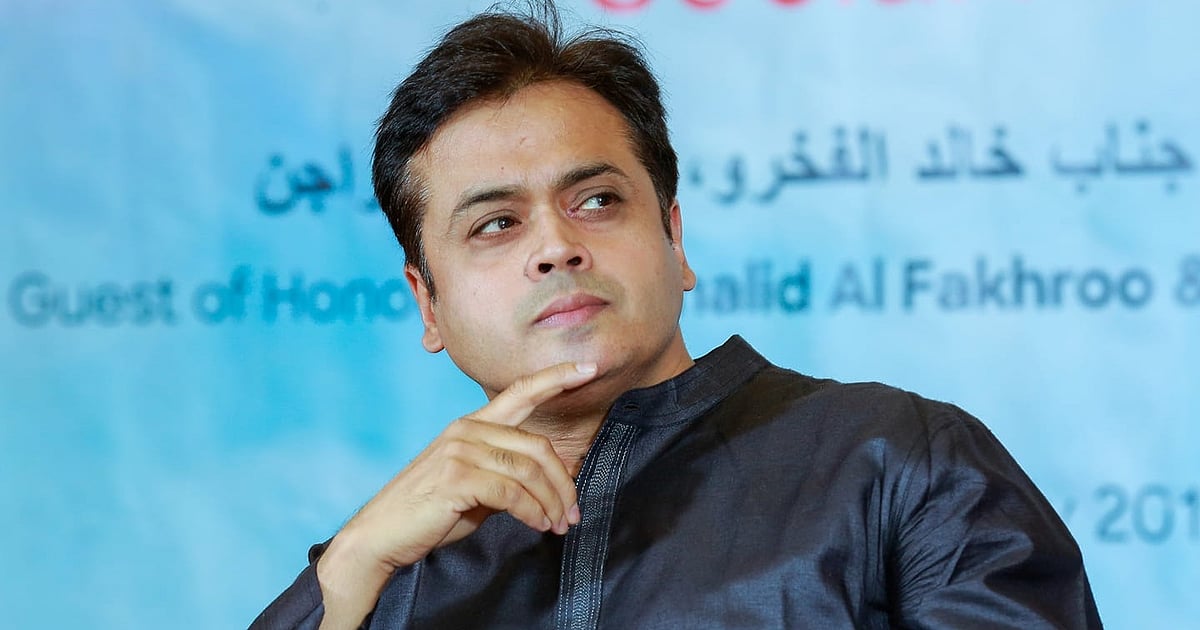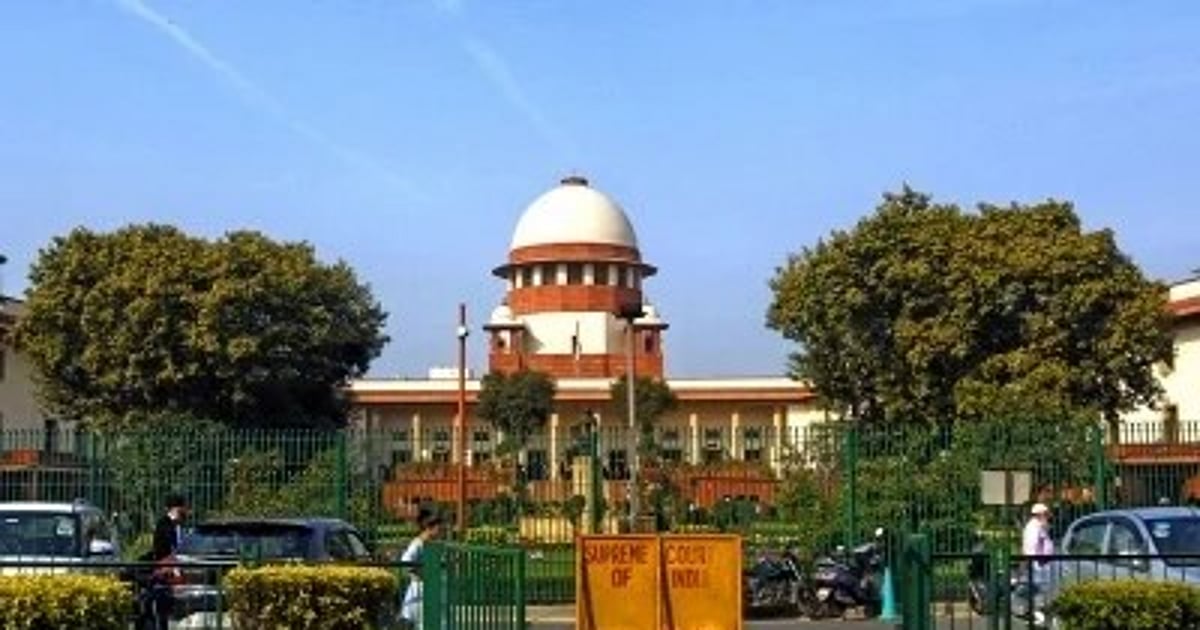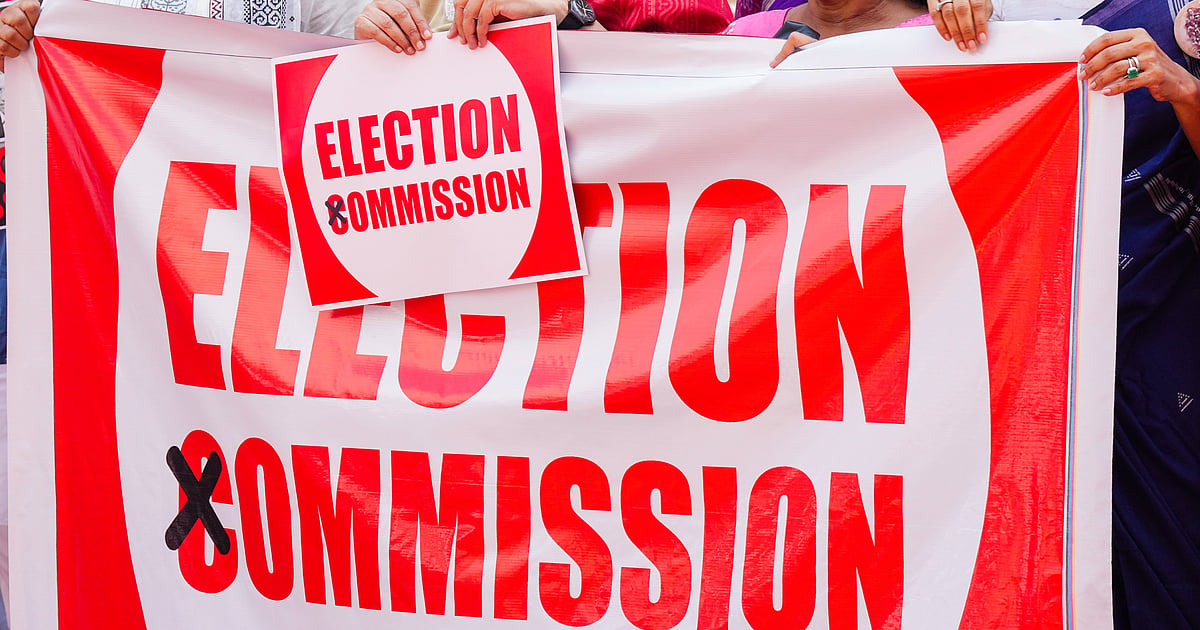National News
If a word is touched in the constitution, you will fight teeth and nails: Kharge

Hosabale recently addressed an incident on the Emergency and said that “Baba Saheb Ambedkar never made these words.”
“During the Emergency, when the fundamental rights were suspended, Parliament did not work, and the judiciary became lame, then these words were added.”
The RSS leader said that the issue was discussed later, but no attempt was made to remove them from the preface. “So should they remain in the preamble, should be considered,” he said.
Kharge said, “The RSS is always against poor people, dowtra -dowtra and schedule against caste and other communities. If they are so interested, they could remove untouchability. They claim that they are champions of Hinduism. If they are so, they should remove untouchability.”
The Leader of the Opposition in the Rajya Sabha also said that the RSS should deploy all its volunteers to ensure that untouchability is removed and the country is kept united. Kharge said, “Instead, just talking, noise and creating confusion in the country-it is very bad, and we are against it. The party will fight the teeth and nails if a word is touched in the constitution,” Kharge said.
National News
When the secrets are pure – until you are Abhisar Sharma

So, here is the latest spin from the political carnival: Abhishar Sharma, a YouTuber-Journalist and a major national news channel popular former news langar (who thanks BBC He is now a proud subject of a cedar in Assam to dub it “major” and critical), after he was filed, he questioned the allocation of 3,000 acres of tribal land to a private company – a fact that was stagnant High Court judge Hearing the matter – and suggested that the state and its Chief Minister Himanta Biswa Sarma were involved in communal politics.
Sharma’s remarks were already based on the information available in the public domain, mainly CM’s own comments, but when do the facts come in the way of a good cedar? Sharma has received temporary recurrence from the Supreme Court, but has not dismissed the allegations.
But wait – Daman’s performance was a supportive task in art. BJP MPs Nishikant Dubey, who decided for oblivion, is very close, and thus it has been clearly leaked that Sharma’s income tax returns appear on social media – easely indicating that as soon as Sharma started moving on the streets and misbehaved with Modi/BJP, his income was again increased by Rs 1.2 lakh before the rupee. The context is, of course, for Sharma’s anti -BJP stance.
Confidential tax details, finally, reading bus weekends for MPs, not data protected by privacy laws under India’s Income Tax or Information Technology Acts. Who cares, isn’t it? As it happens, ordinary people to do Care. For evidence, read the comments under Dubey’s post.
Sharma announced that he was filing his own FIR-and tagged the Income Tax Department and Union Finance Minister Nirmala Sitarman to ask: Whose desk (or shared USB drive) got this MP access to the top-patched ITR data?
National News
Center cannot challenge Governor’s works under State Article 32: Center to Center: Center

The Central Government on Thursday informed the Supreme Court that the state governments cannot use writ jurisdiction to challenge the work done by the President or a governor belonging to the bills passed by the state assemblies, even if such action allegedly violates fundamental rights.
Representing the Center, during the hearing before the five-judge Constitution Bench, led by Chief Justice Bra Gavai, Solicitor-General Tushar Mehta, the President demanded the opinion of the apex court whether the state could file a writ petition under Article 32 of the Constitution based on violation of fundamental rights.
He further stated that the President wants to understand the interpretation of Article 361, which gives the President and the governors immunity to be responsible for the courts to perform their official duties.
Addressing the bench – also included as Justice Surya Kant, Vikram Nath, PS Narasimha and Chandurkar – Mehta said that although these issues were considered during internal discussions, the President gives a certain verdict from the court, especially when similar questions can be revealed in future.
Mehta said that a Article 32 petition cannot be made against the functions of the state president or governors, stating that no direction cannot be issued to these constitutional authorities.
“Article 32 lies when the constitutional plan leads to fundamental rights and state government violations, it is not a fundamental right in itself. It is a store of tasks to protect the fundamental rights of its people,” said Mehta.
National News
Did the Election Commission lie in the Supreme Court?

In another curious turn for the head (special intensive amendment) of the electoral rolls being held in Bihar, the Election Commission has denied any knowledge of a ‘independent assessment committee’ – which he claimed in his affidavit that he has actually triggered the practice!
So, is the commission lying now, or is it a lie in the Supreme Court – that’s the question.
Transparency activist Anjali Bhardwaj and RTI application filed by media outlets Correspondent Following the following response from ECI: The Commission claimed that it had no information about the Independent Assessment Committee and that no files, meetings or file noting were available to show the noting. How The decision to operate a nationwide SIR was started, discussion, final and approved, or When?,
When asked for a copy of orders or guidelines related to the 2003 rolls in Bihar, the ECI instead provided 2025 guidelines and notifications.
Nitin Sethi, a trustee of the collective trust of reporters, noted that a constitutional body directed about 80 million voters in Bihar to produce documents to establish their citizenship and voting rights within 30 days, it refuses to share their records with people.
Transparency activist Anjali Bhardwaj says that similar records, files and notes were asked in the election bond case – and both Finance Department and State Bank of India had forced. Why, then the ECI will refuse to share the details and what it is trying to hide, he asked.
-

 IPL3 months ago
IPL3 months ago‘Any nahhi numba hai’: Furious MS Dhoni loses cool, CSK shouts at players – Watch. Cricket news
-

 Sports3 months ago
Sports3 months ago‘Is MS Dhoni fit or not?’ Cricket news
-

 IPL3 months ago
IPL3 months agoExplained: Why Punjab Kings will get two opportunities to reach IPL 2025 final
-

 National News3 months ago
National News3 months agoIndian Youth Congress started fellowship program for young lawyers
-

 IPL3 months ago
IPL3 months agoIPL 2025: Hardik Pandya hit the unique ‘Triple Century’ in T20S.
-

 IPL3 months ago
IPL3 months ago‘No, you can’t take it …’: Shreyas Iyer’s bold statement. Cricket news
-

 Sports3 months ago
Sports3 months agoHow Rohit Sharma’s bad form with BAT is damaging Mumbai Indians’ IPL 2025 campaign
-

 National News3 months ago
National News3 months agoMamta paid tribute to ‘rebel’ poet Qazi Nazrul Islam on her birth anniversary
